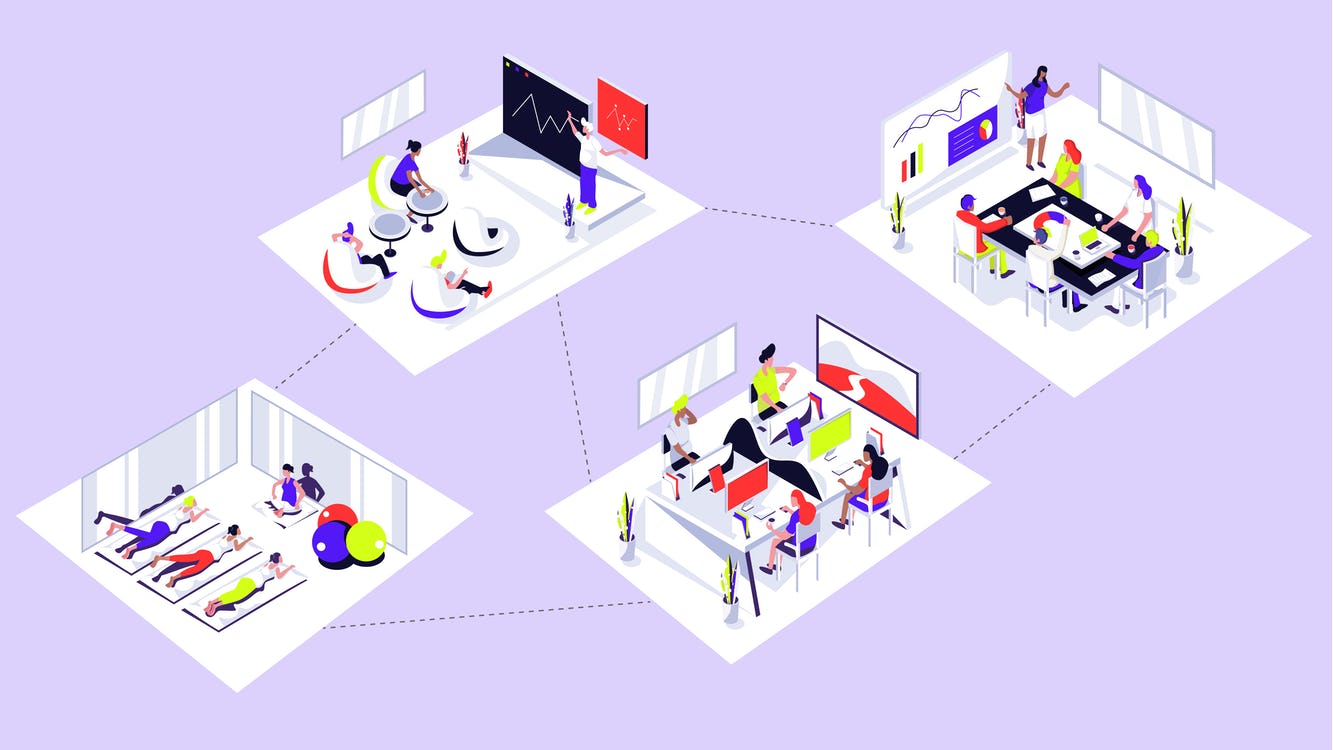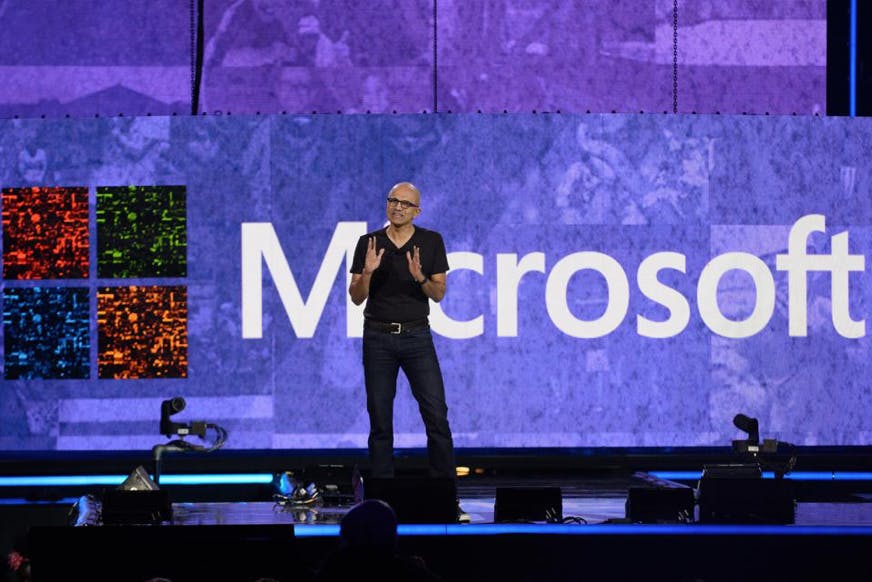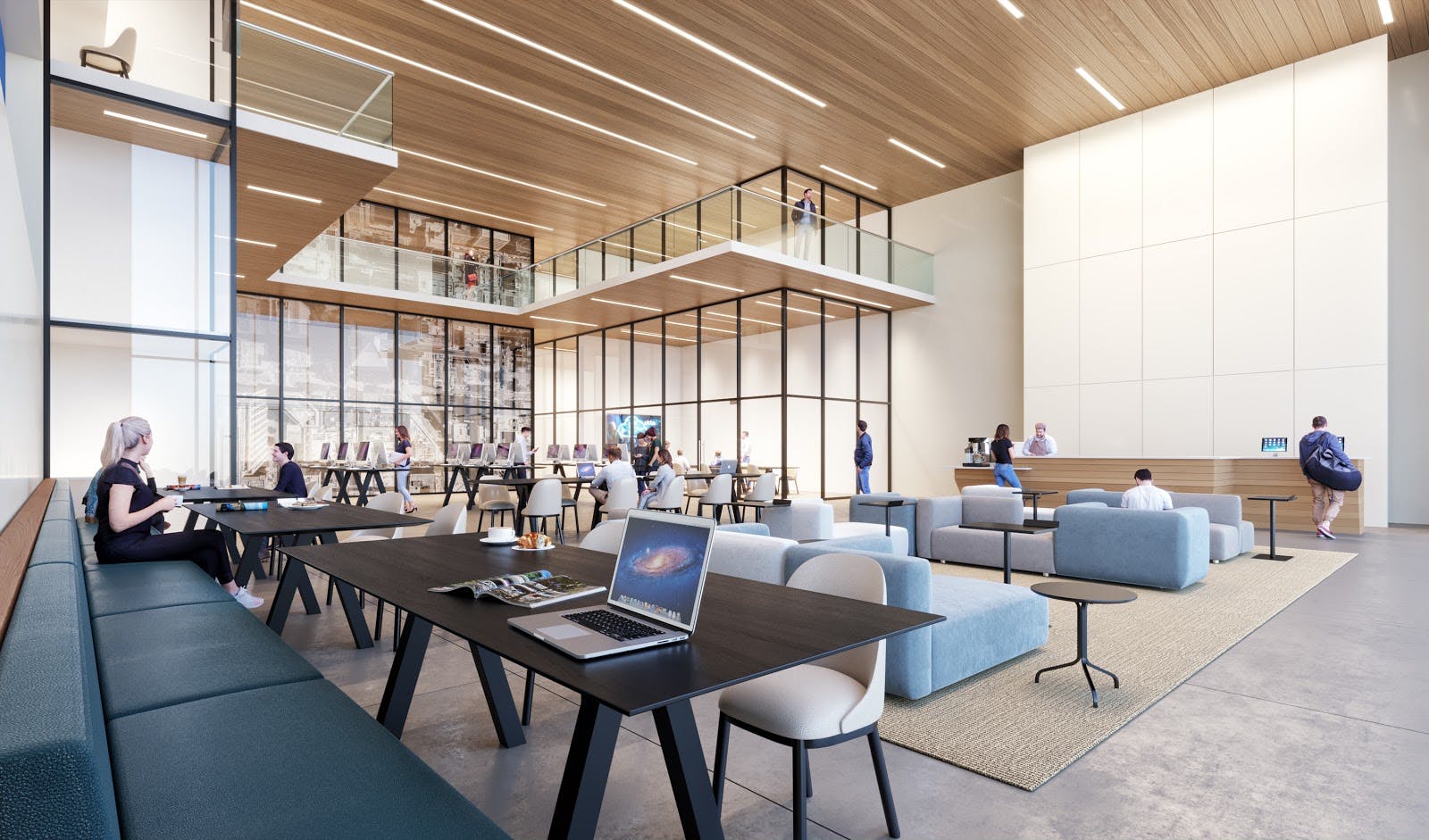5 Top Companies Who Have Chosen Hybrid Work

VergeSense is the industry leader in providing enterprises with a true understanding of their occupancy and how their offices are actually being used.
In the coming months, every organization will have to make a decision concerning the return to the office. Mainly, they have to decide if they will require employees to work from the office every day, as was the case for many in pre-pandemic times, or if they will allow for hybrid or fully remote teams.
The VergeSense 2021 Workplace Impact Report revealed that 74% of organizations returning to physical office spaces are choosing hybrid work environments, with top motivators for returning to the office being:
- #1: Safety
- #2: Productivity
- #3: Employee experience
We measured 40M square feet of office space worldwide to see how the use of office spaces changed during the pandemic. We found that collaborative use of office space is rising and even surpassed individual workspace usage pre-pandemic. Now, competitive organizations are beginning to prioritize the hybrid experience as a business initiative.
While choosing hybrid and dynamic work environments benefits employees, it also benefits companies. They can diversify their real estate portfolio, opting for more satellite offices, and make better use of in-office spaces.
Top Companies Choosing Hybrid and Dynamic Work Models
Let’s take a look at how leading companies are navigating the new normal.
1. Ford

Source: Forbes
Ford Motor Company, the century-plus old automobile company has announced that they will be redesigning their workplace to support hybrid work moving forward. Their new policies include working from home indefinitely and allowing for employees to create flexible schedules dependent on their individual work responsibilities.
According to Kiersten Robinson, Ford’s chief people and employee experience officer, “The nature of the work we do really is going to be a guiding element. If there’s one thing we’ve learned over the last 12 months, it is that a lot of our assumptions around work and what employees need has shifted.”
2. Citigroup

Source: Barrons
For Citigroup, the multinational investment bank, creating hybrid workplace policies is all about prioritizing the health and wellness of their employees. In addition to launching Zoom-Free Fridays (designating Fridays as a day free of video calls), encouraging employees to set healthier work boundaries such as no longer scheduling calls outside of traditional work hours, and allowing employees to work from home up to two days a week, Citigroup also created Citi Reset Day, a firm-wide holiday on May 28th where employees are encouraged to spend the day with friends and family.
CEO of Citigroup, Jane Fraser understands that the return to office is an ongoing process. “Since a return to any kind of new normal is still a few months away for many of us, we need to reset some of our working practices if we are to stay true to one of the principles we set to manage through the pandemic: ‘Make the most of now.’” said Fraser.
3. Microsoft

Source: Forbes
One of the earliest advocates for creating a hybrid workplace, Microsoft has created hybrid policies that put the decision of where employees work from each day into the hands of the employees themselves. As a way to navigate the seemingly constantly changing government guidance for COVID-19, they developed a Hybrid Workplace Dial that determines the volume of on-site workers their offices are able to safely manage on any given day, based on the local and federal COVID-19 mandates.
“As some employees return to our global work sites and others prefer or need to work remotely, we are finding additional ways of putting our hybrid workplace into practice. At each of our global work sites, the hybrid workplace model strikes a balance, providing limited additional services on campus for those who choose to return, while supporting those who need to work remotely or feel more comfortable doing so,” wrote Kurt DelBene, Executive Vice President of Microsoft. “Our goal is to give employees further flexibility, allowing people to work where they feel most productive and comfortable, while also encouraging employees to work from home as the virus and related variants remain concerning.”
4. Okta
In 2020, Okta announced their new Dynamic Work model, which is a form of hybrid working. Okta will allow employees to work remotely, from anywhere and the organization will support distributed work, hiring from all around the world. They will create office spaces and set up satellite offices based on needs, not based on location.

Source: Okta
Okta leadership members Armen Vartanian, SVP of Global Workplace Services, and Kristina Johnson, Chief People Officer, comment on the future of the office,
“Similar to how retail stores have become places to go to try out products, interact with employees, and get a feel for the company’s culture, offices will soon function in a similar way. We envision them like Apple Stores: a larger number of smaller spaces in various locations around the world where you can experience our brand and product, while also providing seating for when employees need to come to the “office.” The spaces will provide customers, partners, and employees with a place to connect and work from when wanted, while not requiring a regular in-office schedule.”
5. Spotify
Spotify announced a flexible work model where employees are able to work from anywhere; they can work from home, from the office, or from a coworking space— anywhere around the world. Since launching this new way for employees to work, Spotify has seen improvements in their recruitment efforts and made a concerted effort to build a culture independent of being in the same office space.

Source: Spotify
By choosing a hybrid work model, companies are telling their employees that they are committed to a flexible future of work designed for productivity, not just appearances. Businesses are moving away from choosing the traditional in-office, individual-workspace-centric, 9-to-5 approach in favor of flexibility and addressing employee needs. When employees are kept at the forefront of corporate real estate decisions and companies prioritize an inclusive company culture, people are more productive and produce better business results.
Hybrid working is unchartered territory for many organizations. The process is rife with uncertainty and there is a critical need for more information on how employees will actually engage with the workplace as they return to the office. Stakes are high and the reward is great. For examples of early adopters rising to the challenge, flip through our lookbook: The World's Most Inspiring Workplace Transformation Stories.